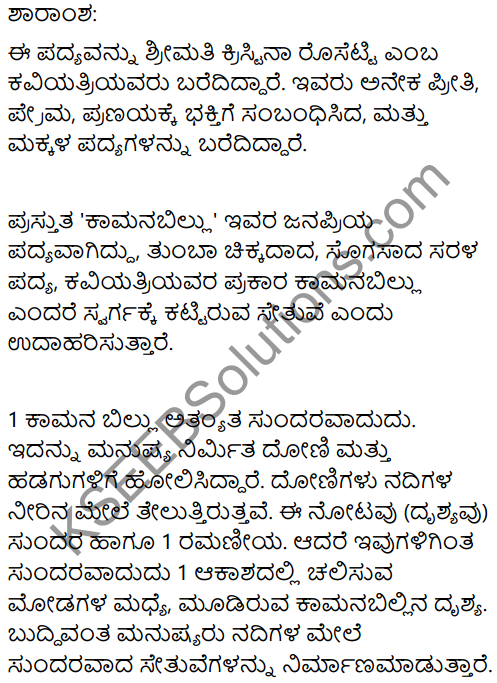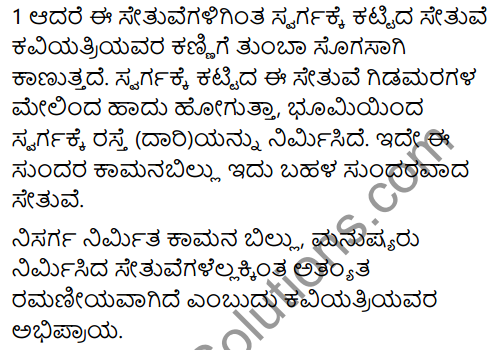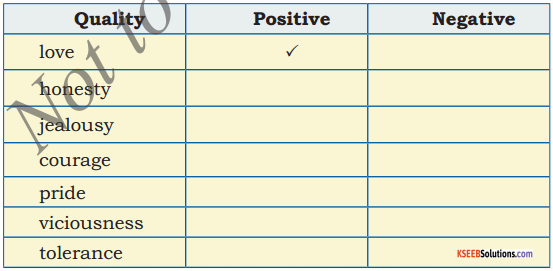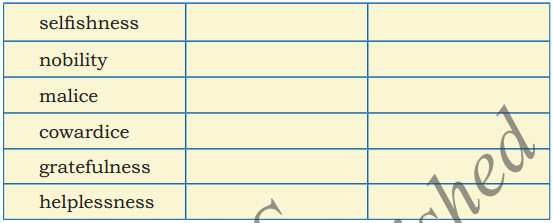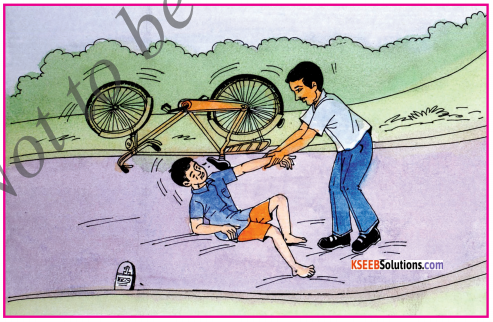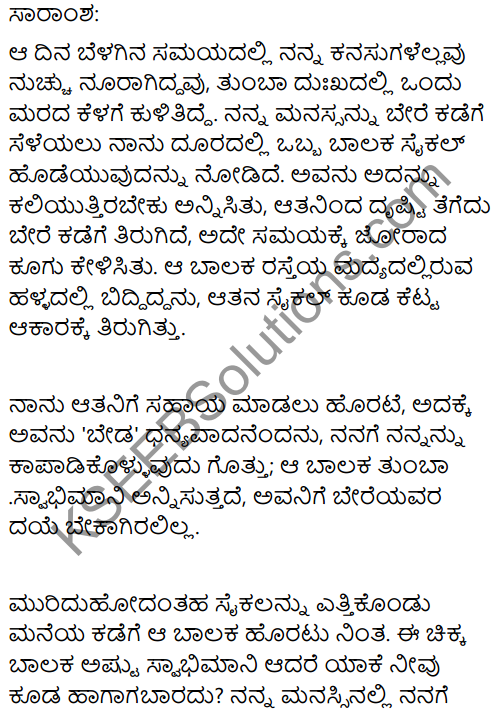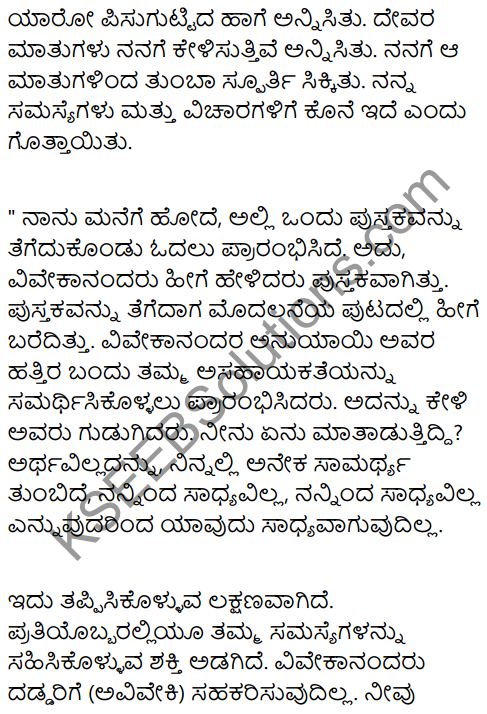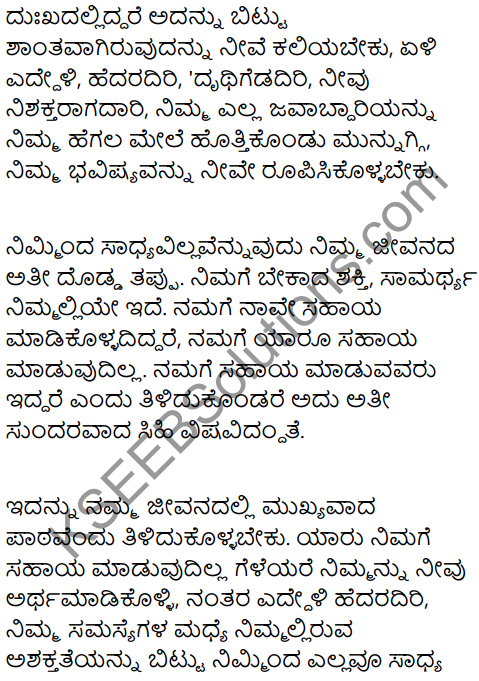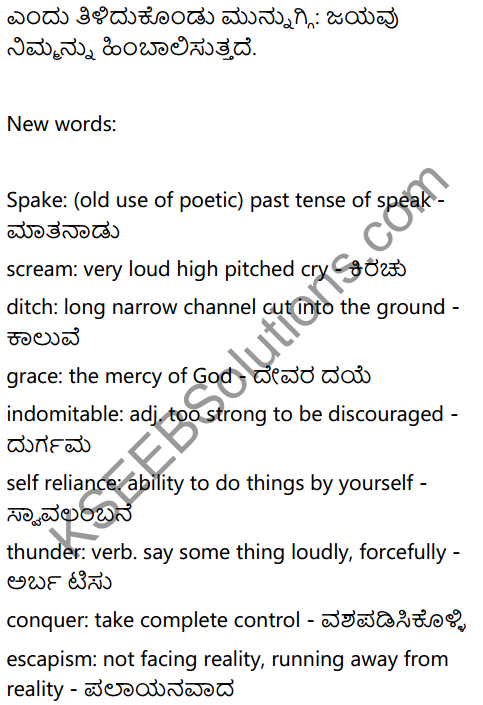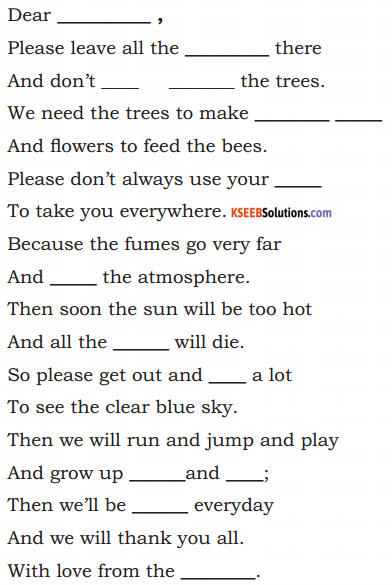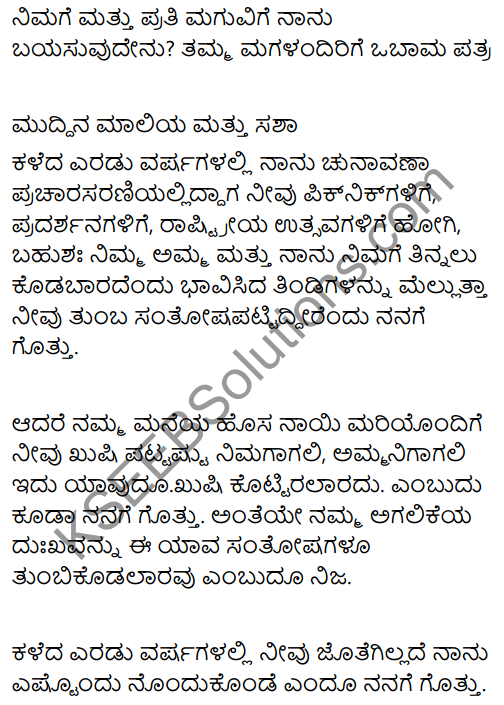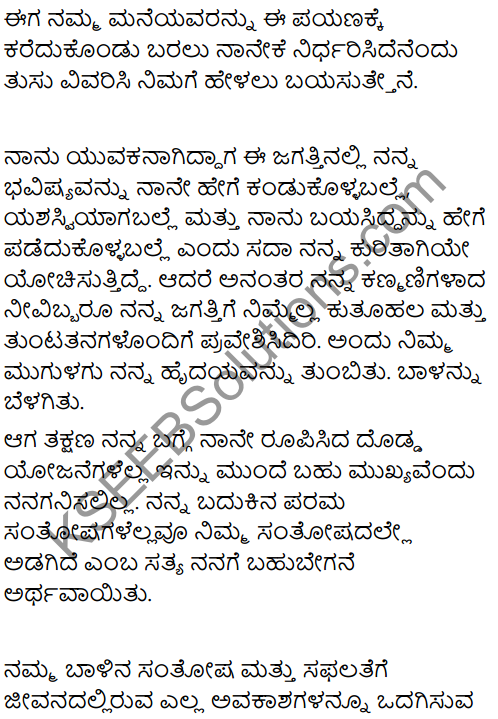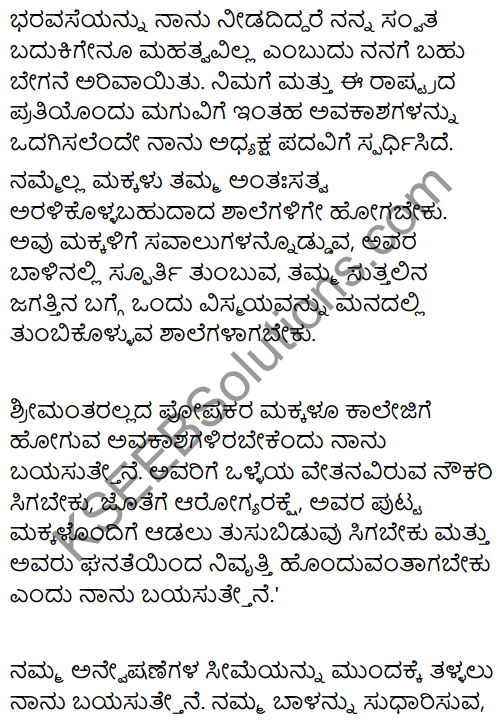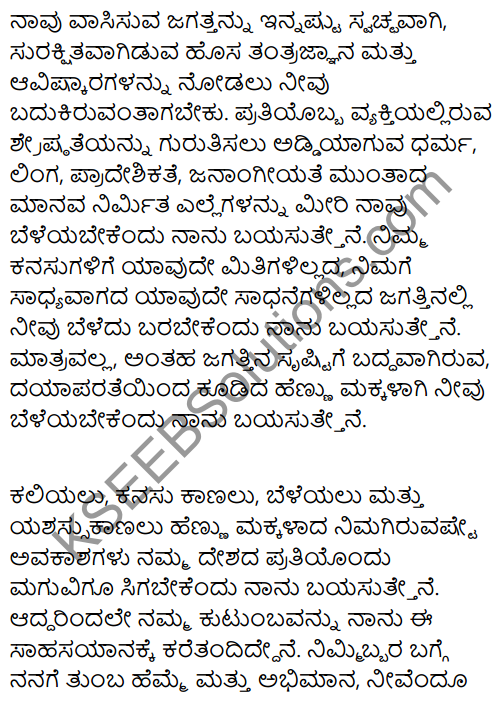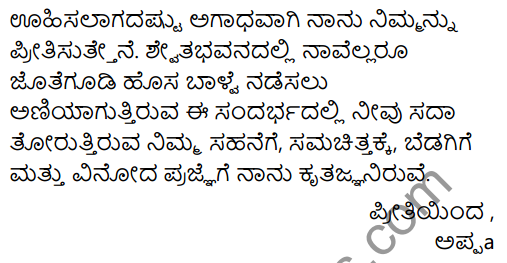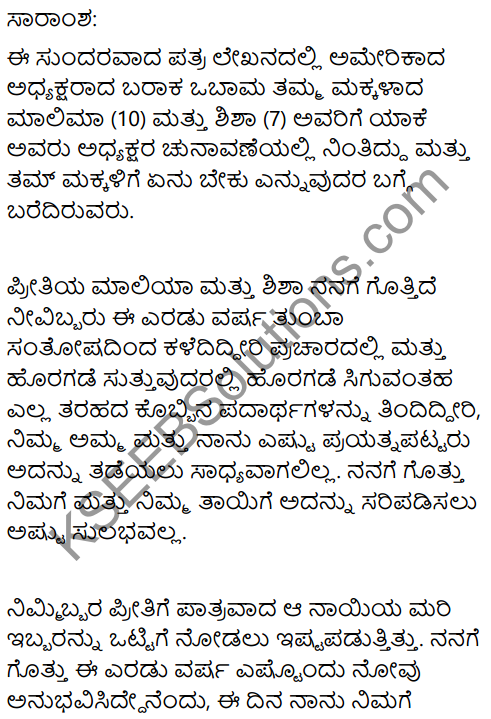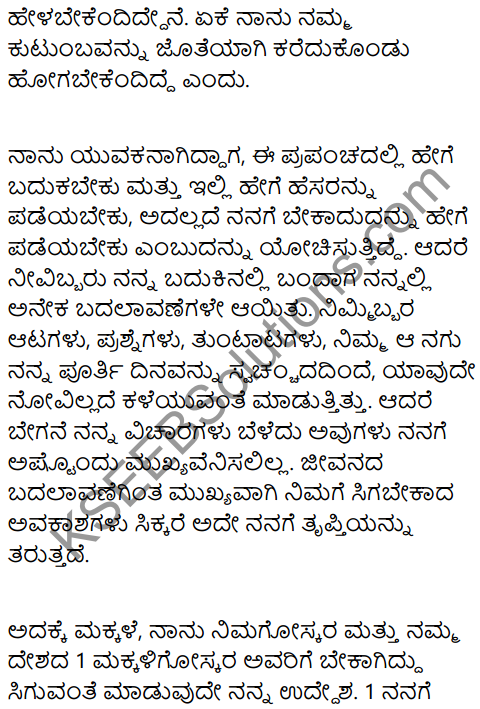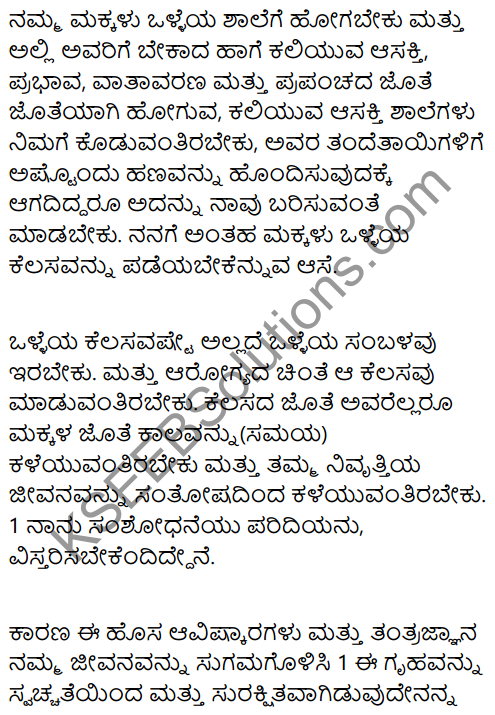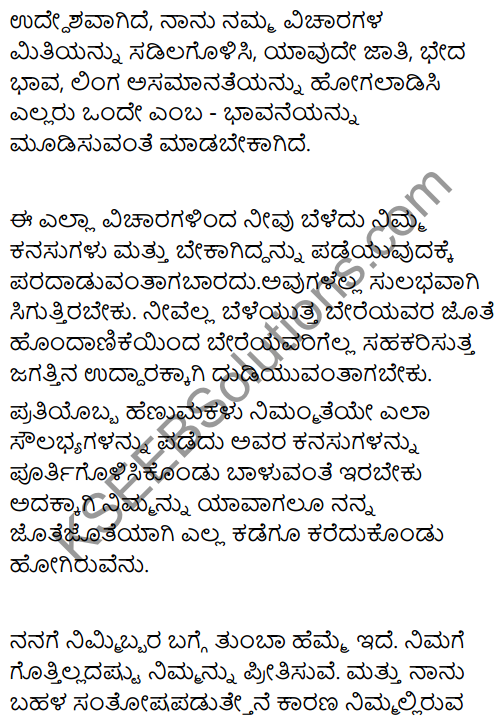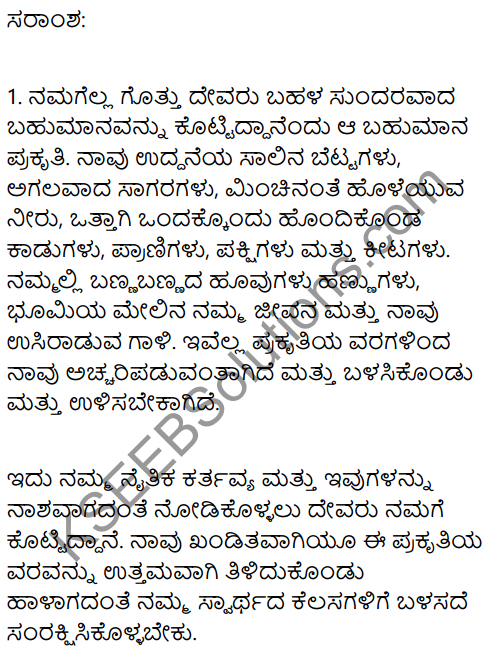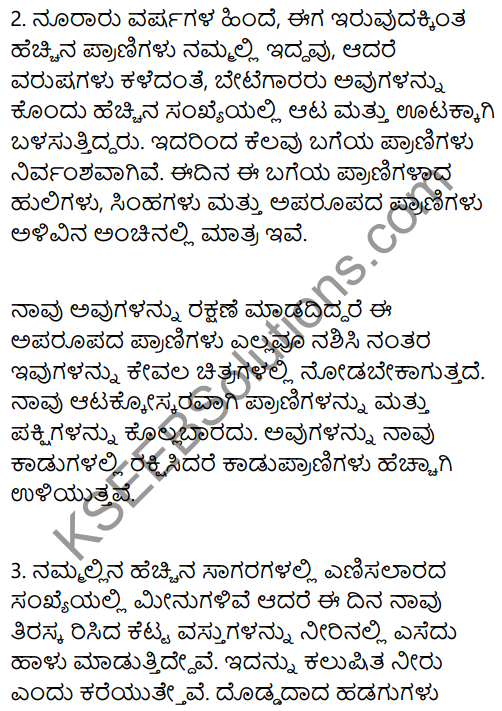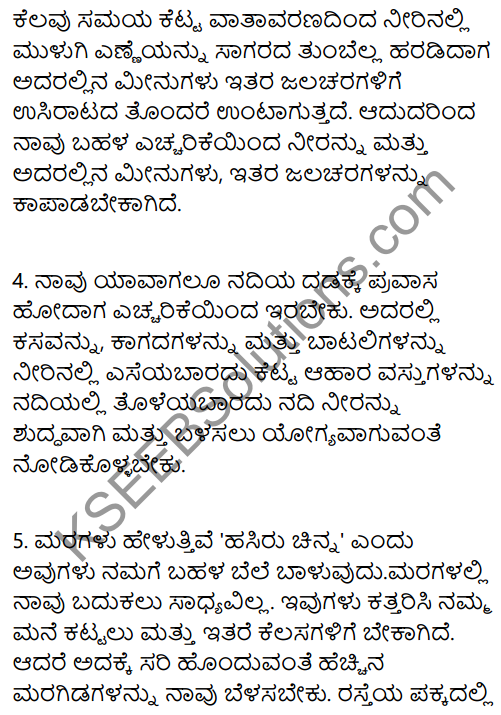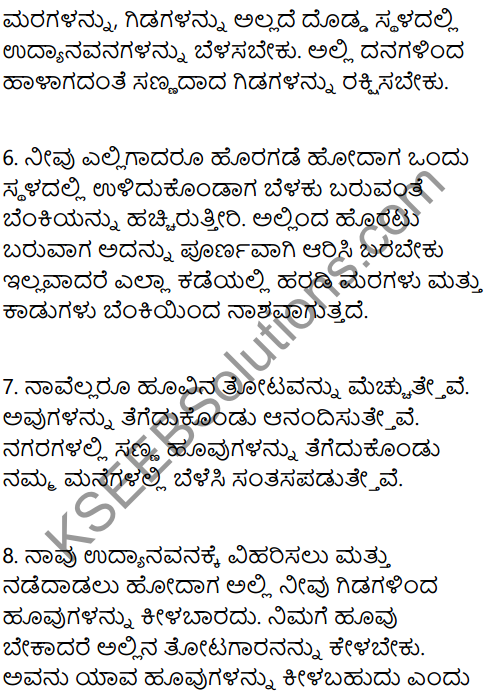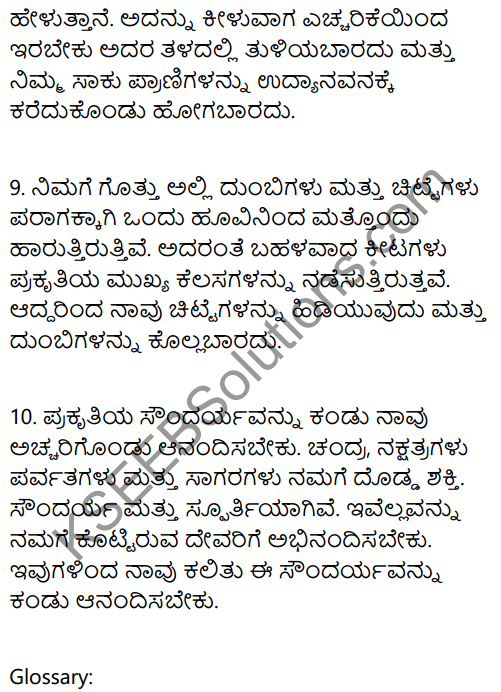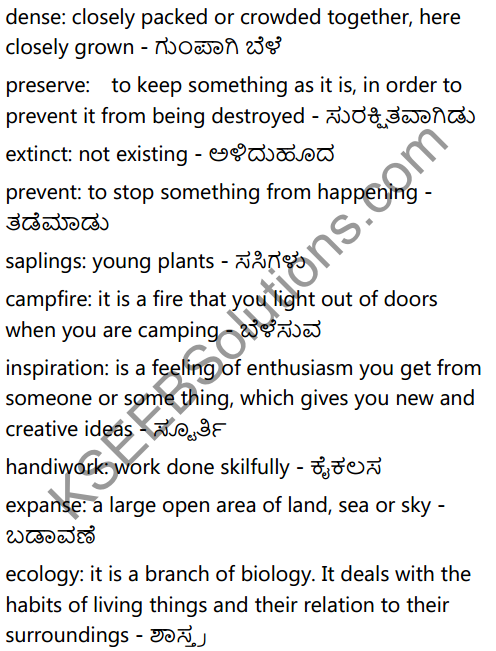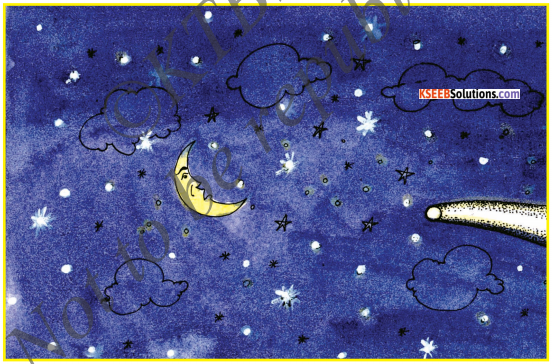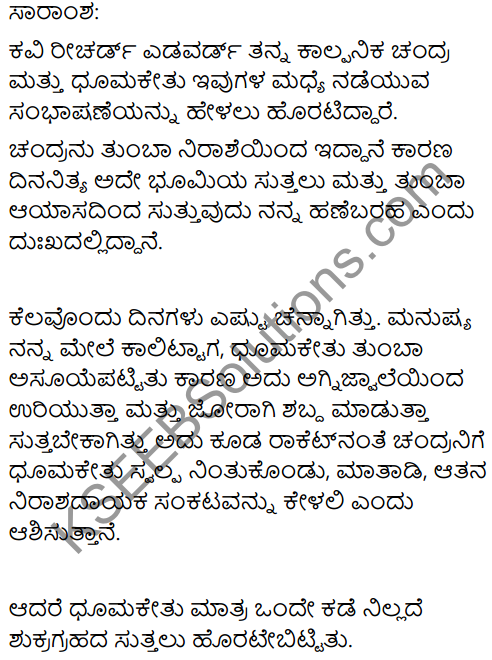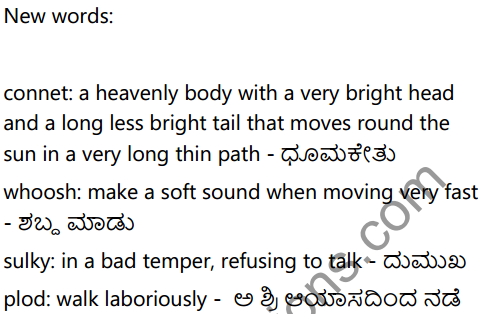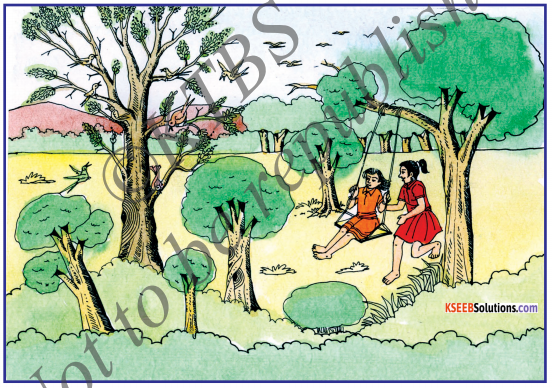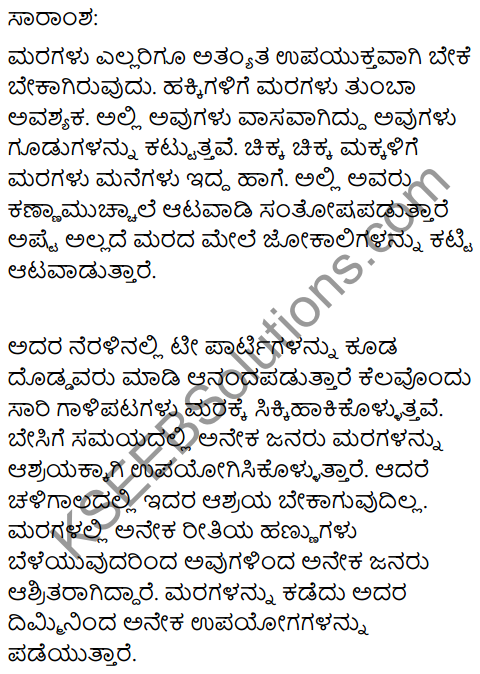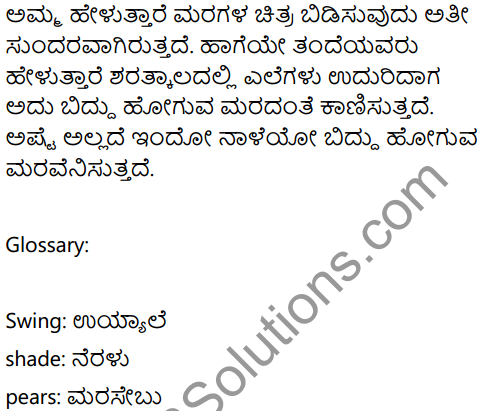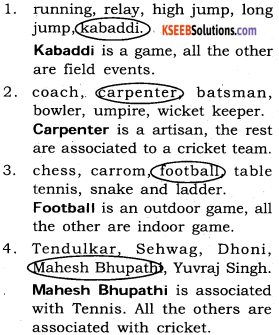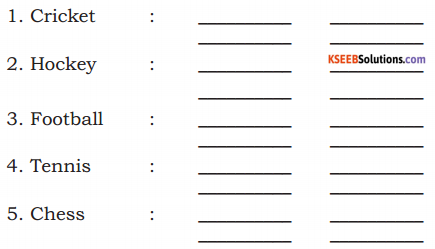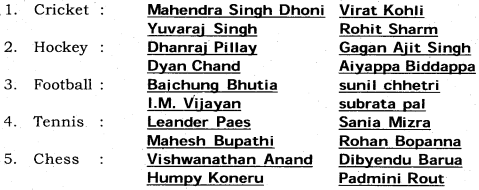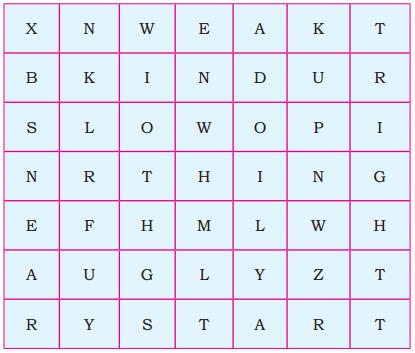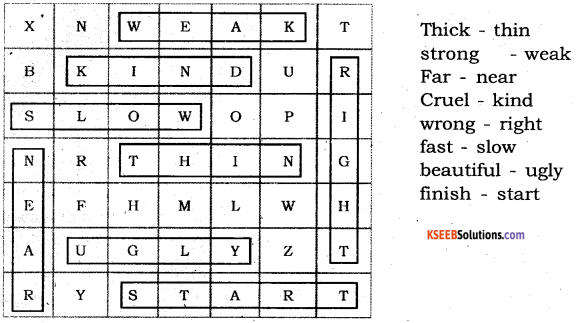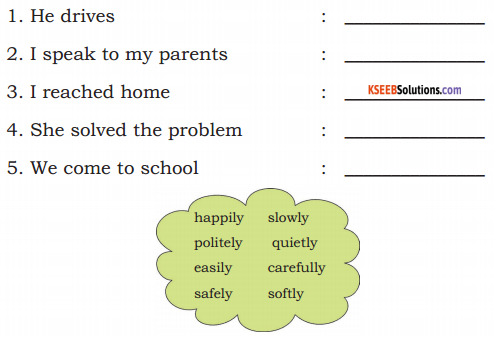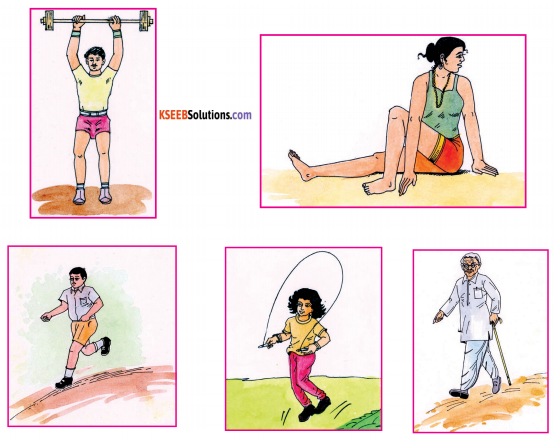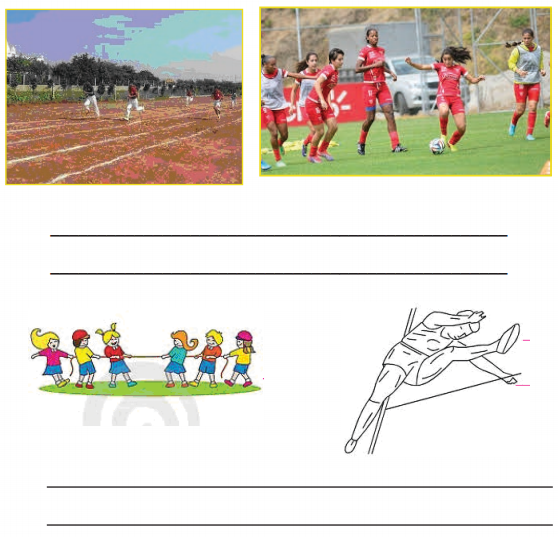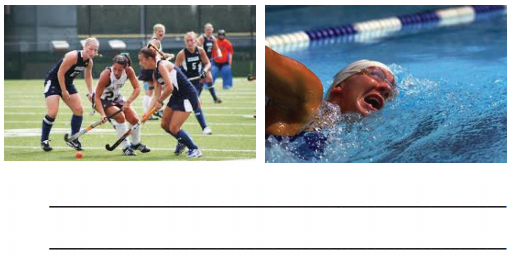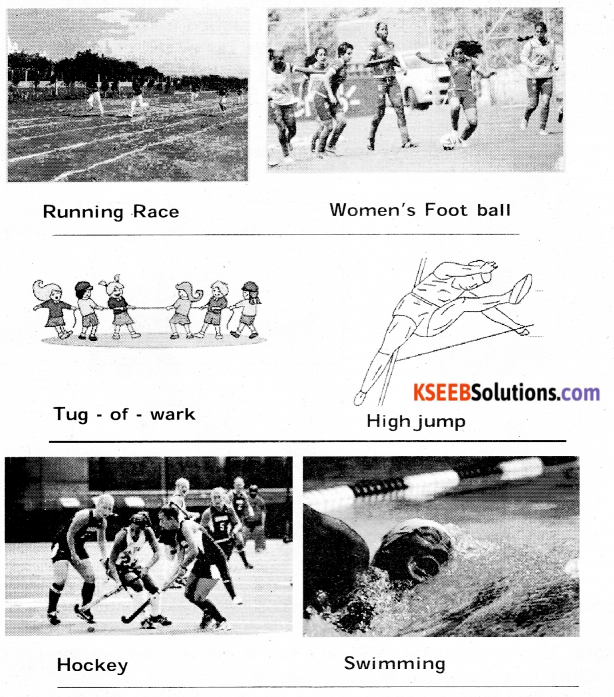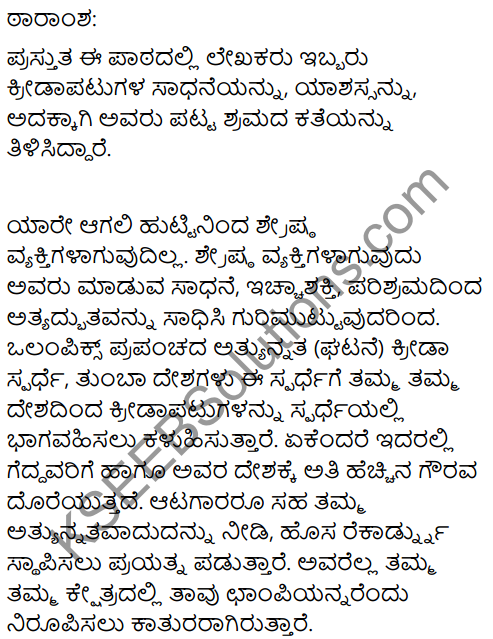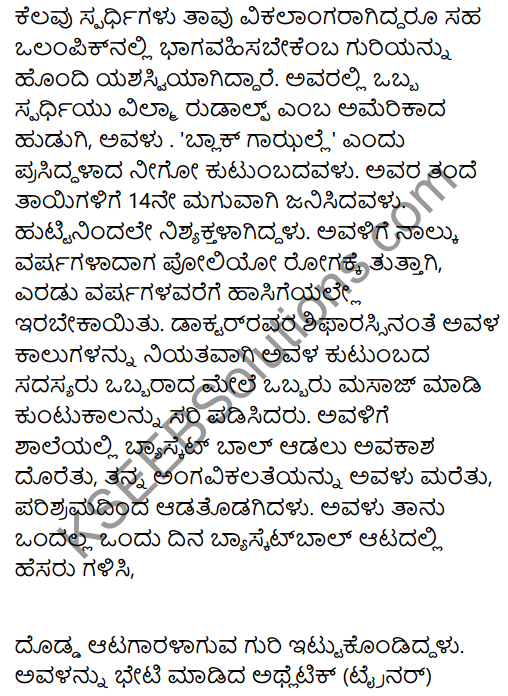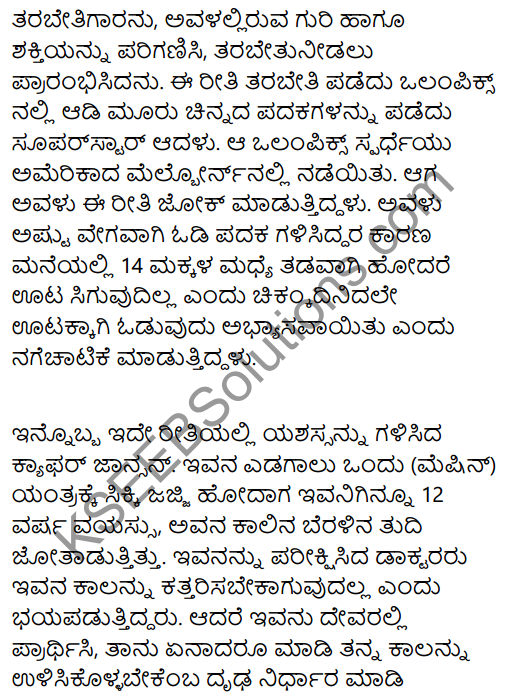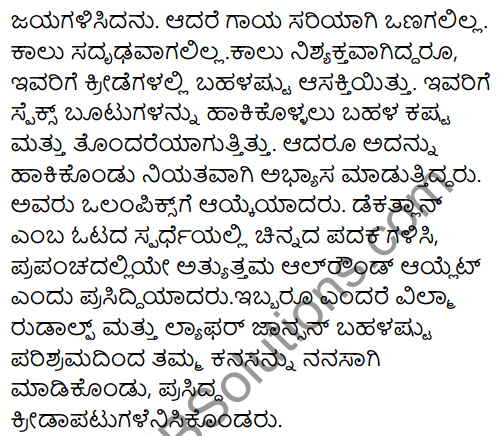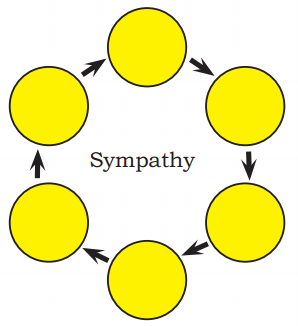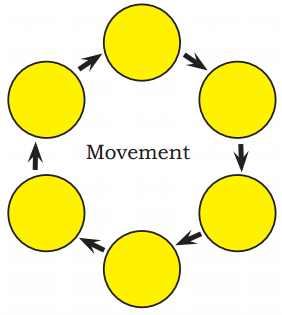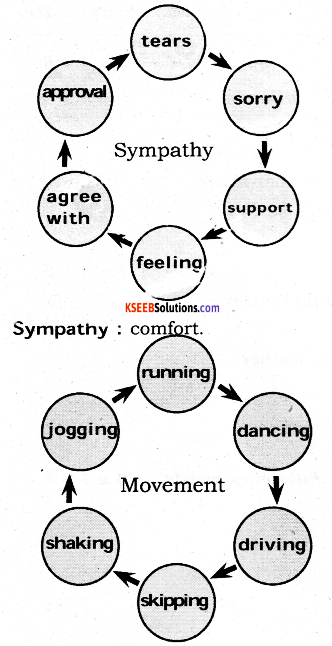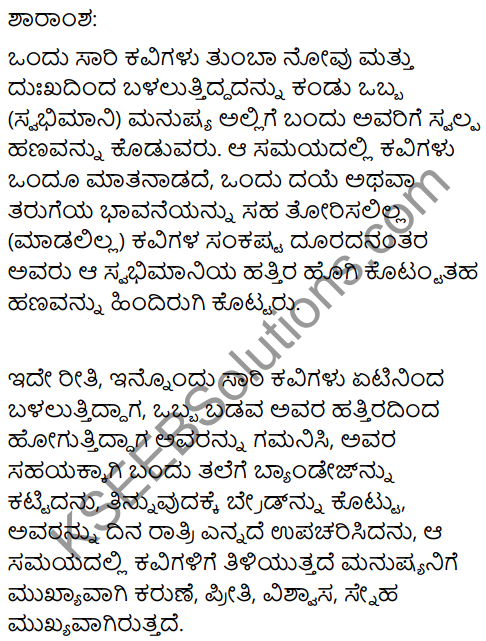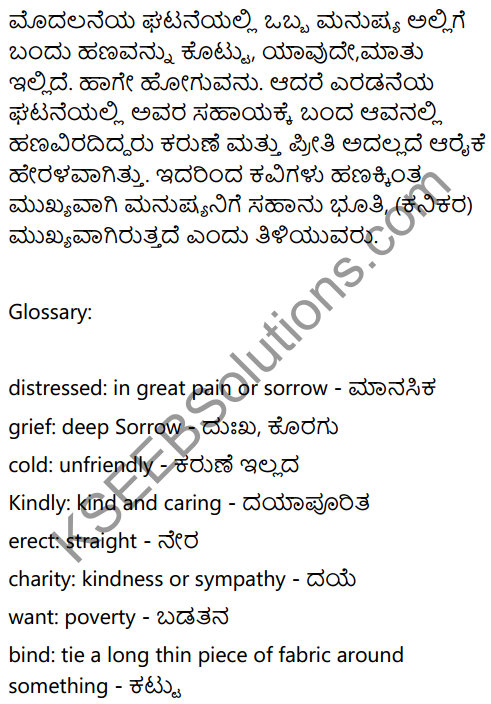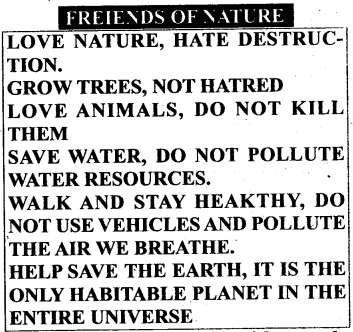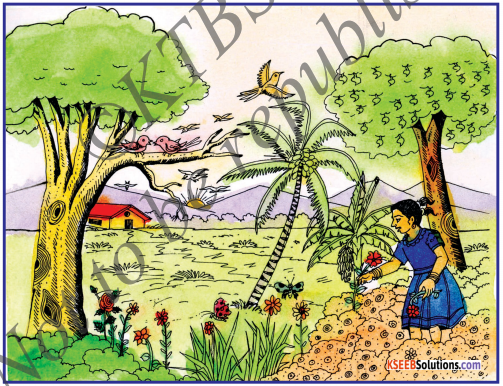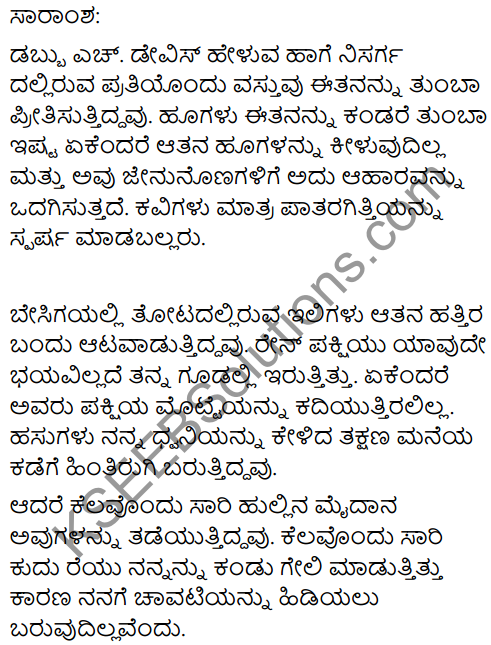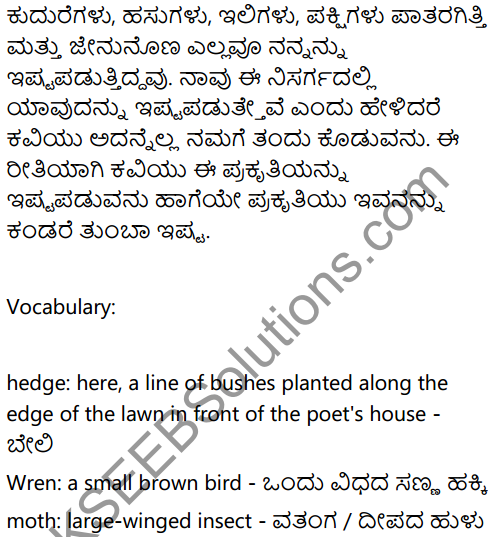KSEEB Solutions for Class 6 English Prose Chapter 2 The Scholar’s Mother Tongue Free PDF Download is available here. Karnataka State Board Class 6 English are prepared as per the Latest Exam Pattern. Students can prepar these English Chapter 2 The Scholar’s Mother Tongue Questions and Answers, Summary, Notes Pdf, KSEEB Solutions for Class 6 English Karnataka State Board Solutions and assess their preparation level.
Karnataka State Board Class 6 English Prose Chapter 2 The Scholar’s Mother Tongue
Prepared as per the KSEEB Solutions for Class 6 English Prose Chapter 2 The Scholar’s Mother Tongue can be of extreme help as you will be aware of all the concepts. These Karnataka State Board Class 6 English Chapter 2 The Scholar’s Mother Tongue Questions and Answers pave for a quick revision of the Chapter thereby helping you to enhance subject knowledge.
The Scholar’s Mother Tongue Questions and Answers, Summary, Notes
Preparatory Activity:
1. Can you answer the following riddles?
Questions:
- What is the longest word in the English language?
- What starts with ‘P’, ends with ‘E’ and has millions of letters?
- What word begins with ‘e’, ends with ‘e’ and has one letter?
- Which ‘pillar’ keeps crawling all the time?
- What has size and shape but no weight?
- Which son may prove dangerous?
- What cannot move or walk, but can go from place to place?
- Which letter in the English alphabet always asks a question?
Answers:
- Smiles, because, it has miles.
- POSTOFFICE
- EYE
- Caterpillar
- Poison
- Road
- ‘Y’
II. Let’s understand:
C1. Answer the following questions in one or two sentences each:
Question 1.
Who was the visitor at Akbar’s court one day?
Answer:
One day a learned scholar, (Pandit) visited Akbar’s court.
Question 2.
What did he tell the king and courtiers?
Answer:
He told the king that he was a master of many languages and could speak many languages fluently.
Question 3.
What did he challenge the court?
Answer:
The pandit challenged the court to find out his mother tongue.
Question 4.
What did Birbal tickle the Pandit’s ear with?
Answer:
Birbal tickled the Pandit’s ear with a feather.
Question 5.
Was Pandit’s mother tongue Hindi? Mention his mother tongue?
Answer:
No. His mother tongue was not Hindi. It was Telugu.
C2. Say whether the following statements are True or False:
Question 1.
A learned scholar once visits the court of Jahangir.
Answer:
False
Question 2.
Birbal says he can speak many languages.
Answer:
False
Question 3.
Birbal tickles Pandit’s ears with a feather.
Answer:
True.
Question 4.
The Pandit admits his defeat
Answer:
True
C3. The paragraph below is the story you have just read. Rearrange the sentences to make it meaningful. Do it in pairs:
a) Birbal came to the court the next day and told everyone that the pandit’s mother tongue was Telugu.
b) The pandit could speak many languages fluently. He challenged everybody at the court to name his mother tongue.
c) A learned pandit once visited the court of Akbar. He told the king that he had mastery over different languages.
d) Everyone in the court failed; the challenge was taken up by Birbal.
e) The king questioned how he knew this and Birbal narrated the incident that took place in Pandit’s bedroom.
f) Birbal quietly entered into the pandit’s bedroom and tickled his ear with a feather. Pandit, half-awake, shouted out words in his mother tongue.
Answer:
c, b, d, f, a, e
C4. The title of the story is “The Scholar’s Mother Tongue”. Work with your partner and think of some other suitable titles.
- Clever Birbal
- The Arrogant Pandit
2. Suppose you are the Birbal of the story. Write a few sentences on
Question a.
How you would find out the scholar’s mother tongue?
Answer:
I would have invited the Pandit for a sumptuous feast at my house. While he is relishing the dishes I would have pricked his thighs with a sharp needle. At that, he would have cried out in pain in his mother tongue.
Question b.
What you would use to tickle the Pandit’s ear with other than a feather.
Answer:
I would have used a blade of grass to tickle the pandit’s ear.
Let’s Speak :
Here is another story that shows BirbaVs wisdom. With the help of the clues given below, discuss the story with your friends and narrate it:
One day Akbar asked the courtiers …………….. what punishment to be given to the person who pulled his beard …………… courtiers ………….. different opinions ……………… to kill under the feet of elephant ……………… Akbar got bored ……………. asked Birbal …………… Birbal said ……………. you should offer
sweets …………… courtiers surprised …………….. Akbar pleased ……………. asked Birbal the reason …………….. Birbal explained …………… none other than the prince would be bold enough to touch his beard …………….. Akbar rewarded him.
Answer:
One day Akbar asked his courtiers to suggest what kind of punishment should be given to the person who had pulled his bear. The courtiers expressed different opinions. One of them told Akbar to get the culprit killed under the feet of elephants. Akbar, however, was not pleased with their answers. He then asked Birbal to suggest a punishment.
Birbal thought for a while and then answered that the culprit should be offered sweets. All the courtiers were surprised at his answer but Akbar was extremely pleased. Akbar asked Birbal the reason for his suggestion. Birbal explained that none other than the prince would be bole enough to touch his beard. Akbar laughed out loudly and rewarded him with a gold ring.
V1. Fill in the blanks with the opposites of the underlined words:
- We are in the same class but have different opinions about the teacher.
- My friend failed to solve the riddle, but I succeded.
- Raghav was quiet in a noisy class.
- Mother stayed awake while the child was asleep in the cradle.
- I accepted to help Sonu, but he rejected my help.
- Shantha thought that the sum is difficult, but after working it out she found it easy.
V2. Frame meaningful sentences using the words given below. Refer to a dictionary:
Example: Discuss:
In the absence of the teacher, students started discussing the sum.
- Mastery: Man’s mastery over his environment is to be controlled.
- Asleep: The baby is fast asleep in the cradle.
- Shout: The P.T master shouted commands in the parade.
- Surprise: I was surprised to see my parents in the hostel.
- Truth: Truth always win.
V3. Write all the words that show you are happy:
Example – Hurray.
Wow! Super! Amazing! Fantastic! Fantabulous! ‘Superb!
V4. Relate the words in column ‘A’ students started discussing the sum. with the words in column ‘B’ and relate the same to column ‘C’.
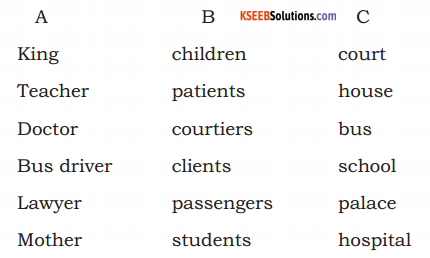
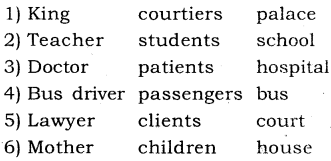
V5. Here is a word pyramid with only the word ‘IT’. Use the clues to complete the other ‘it’ words in the pyramid.
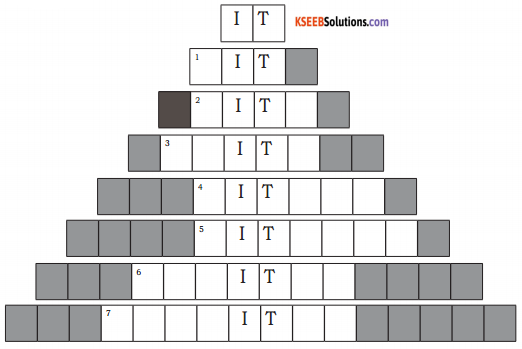
- Don’t stand, SIT
- The dog will BITE you. Be careful!
- Use a pen to WRITE
- A cat’s baby is a KITTEN
- Mother cooks food in a KITCHEN
- The headquarters of a country/state is called CAPITAL
- When you are sick you go to a HOSPITAL
Let’s practice language:
G1. Fill in the blanks with a, ‘an’ or ‘the’.
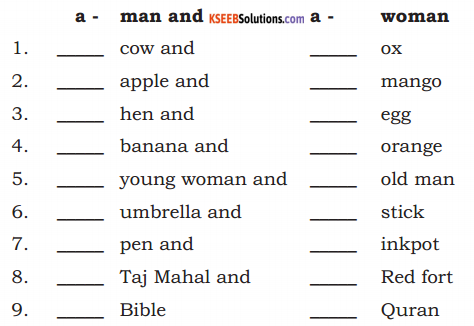
- a cow and an ox
- an apple and a mango
- a hen and an egg
- a banana and an orange
- a young woman and an old man
- an umbrella and a stick
- a pen and an inkpot
- The Taj Mahal and the Red Fort
- The Bible the Quran
G2. Some words are missing in the following story. Complete the story by adding words (choose words from the brackets) Rewrite the story in the form of a paragraph:
One day a great scholar came (came, coming) to King Akbar’s court. He knows (knows, knew) many languages, No one know (knew, know) what his mother tongue was. He challenged everyone to find out (find out, finds out) his mother tongue.
Everyone tried (tries, tried) but failed (fails, failed) to find out (find out, found out) his mother tongue! Now the task was given to Birbal. That night Birbal went (go, went) to the room of the scholar. The scholar was fast asleep.
Birbal took (takes, took) a small feather and tickled (tickles, tickled) the scholar’s ears. The scholar cried (cries, cried) in fear and shouts (shouts, shouted) words in his mother tongue.
The next day Birbal came (went, gone) to the court and said (says, said) that the’ mother tongue of the scholar was Telugu. King Akbar asked (ask, asked) Birbal how he found (find, found) it out?
Birbal said, ‘In times of danger and in difficulty a person speaks only in his mother tongue!’ Everyone Wonders (wonders, wondered) at the wisdom of Bridal. King Akbar appreciated and rewarded (reward, rewarded) Bridal.
Let’s write:
W1. Punctuate the following sentences:
Question 1.
The pandit says I can speak many different languages.
Answer:
The pandit says, “ I can speak many different languages”.
Question 2.
The pandit asks can anyone find out my mother tongue.
Answer:
The pandit asks, “ Can anyone find out my mother tongue”?
Question 3.
Birbal says the pandit’s mother tongue is Telugu.
Answer:
Birbal says, “ The pandit’s mother tongue is Telugu”.
Question 4.
King Akbar asks how did you find it out.
Answer:
King Akbar asks, “ How did you find it out?
W2. Suppose a new family comes to your neighborhood How would you interact with them? Using the clues given below, write dialogue and enact it in the classroom.
Greeting them ———
Where did they stay earlier ———
The languages they know ———
Total number of members in their family —————-
Parents workplace ———- And how you would help them as a good neighbor.
- Writer: Hello, good morning, welcome to our apartment.
- Neighbour: Good morning.
- Writer: Where are you from?
- Neighbour: We are from Jayanagar.
- Writer: What language do you speak at home?
- Neighbour: We are Kannadigas and speak Kannada.
- Writer: How many children do you have?
- Neighbour: One son and one daughter.
- Writer: May I know your profession?
- Neighbour: I am an officer in the social work department and my wife is a bank employee.
- Writer: Very happy sir and please be free to ask for any help.
Extended activity
Listening (pronunciation)
Listen to your teacher and write down the sentences.

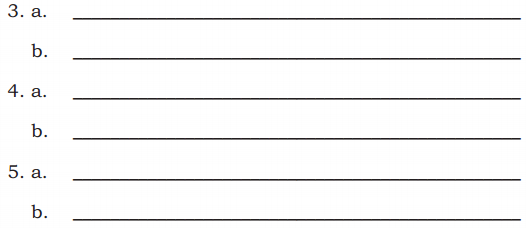
- a. I live in this place.
b. I will leave this place. - a. I want to go.
b. I won’t go. - a. Elephants have short tails.
b. Children are fond of folk tales. - a. Are you sailing in a boat?
b.Would you like to sell the boat? - a. I always wait for my friend.
b. My weight is 32 kgs.
The Scholar’s Mother Tongue Summary in English
‘The Scholar’s Mother Tongue’
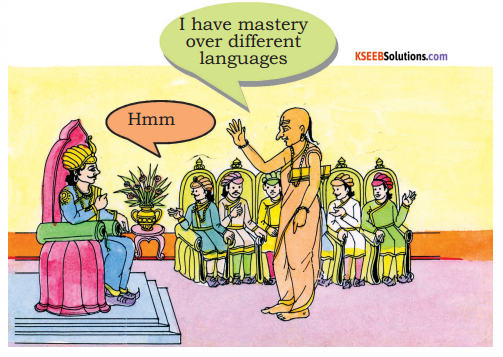
The given lesson The Scholar’s Mother Tongue is extracted from Akbar and Biral Stories’. One day Akbar drew a line on the floor of the open court and challenged his courtiers to make it shorter without erasing it. Everyone were puzzled. Birbal at once drew a longer line beside the’ first one, without touching the first one. All the courtiers and Akbar agreed that now the first line is shorter.
Once a learned scholar (Pandit) visits the court of Akbar and introduces himself as a master of many languages, and can speak many languages fluently. He challenges all present there to find out what his mother tongue is.
All the courtiers fail to find out the pandit’s mother tongue. Then Birbal tells the Pandit that he shall find out the Pandit’s mother tongue in a day or two. The pandit agrees. That night Birbal sneaks into the Pandit’s bedroom and finds him fast asleep. He whispers into the pandit’s ear, then he tickles his ear with a feather.
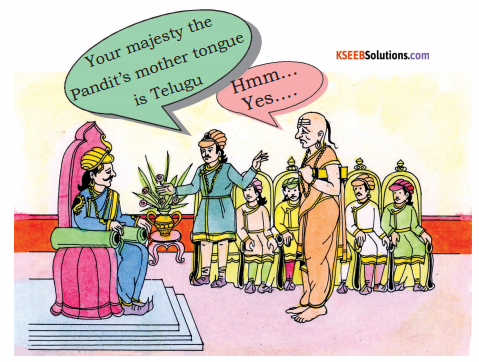
The pandit who was in deep sleep shouted out some words in his mother tongue. He shouts Tevaradi’ in Telugu which means ‘who is that? The next day Birbal declares that Pandit’s mother tongue is Telugu in front of the whole court. The pandit agrees to it.
Akbar is astonished and congratulates Birbal and asks him how he found out the truth. Birbal explains that in times of difficulty a person speaks his mother tongue. Then he narrates the entire incident that took place in the pandit’s bedroom, the previous night. The Pandit accepts defeat and leaves the king’s court in dismay.
The Scholar’s Mother Tongue Summary in Kannada
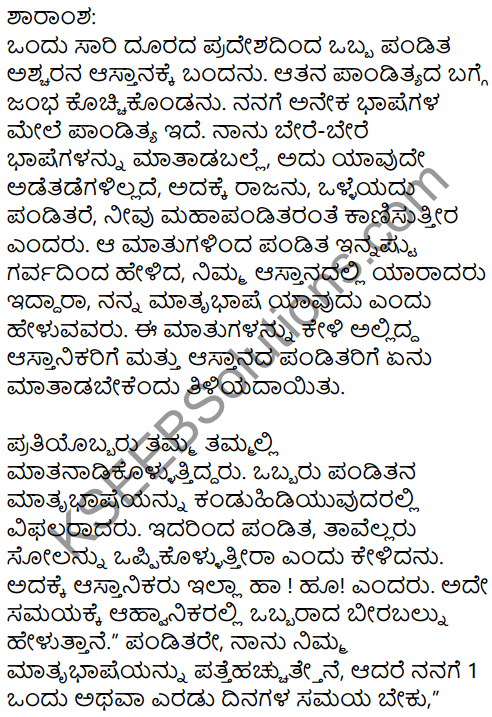
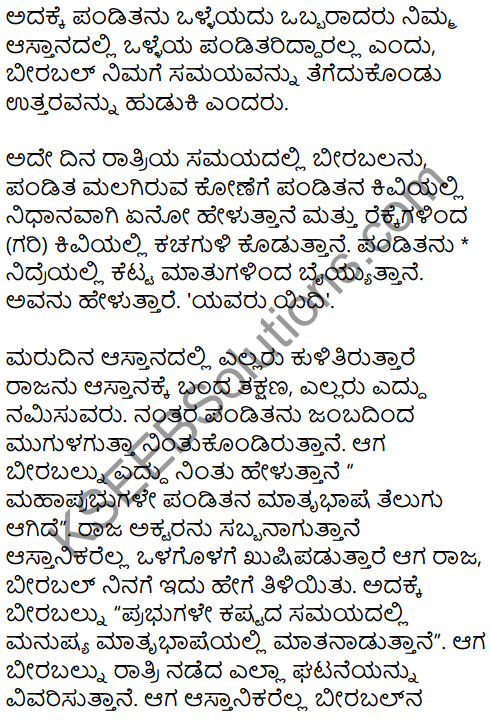
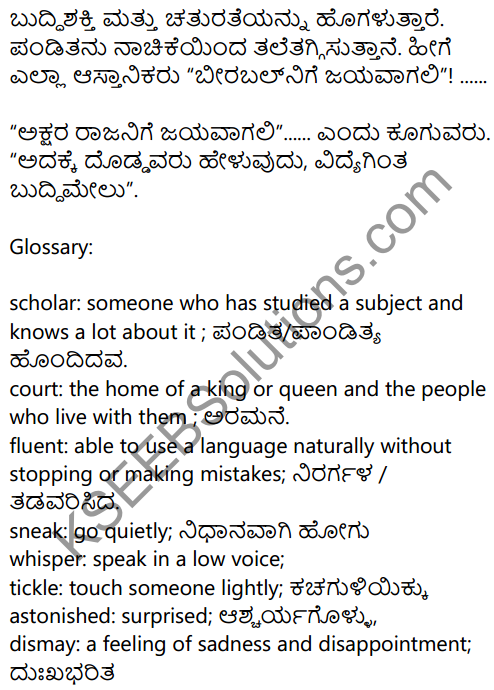
Hope the information shared regarding KSEEB Solutions for Class 6 English Chapter 2 The Scholar’s Mother Tongue Questions and Answers is true and genuine as far as our knowledge is concerned. If you feel any information is missing do react us and we will look into it and add it accordingly.


